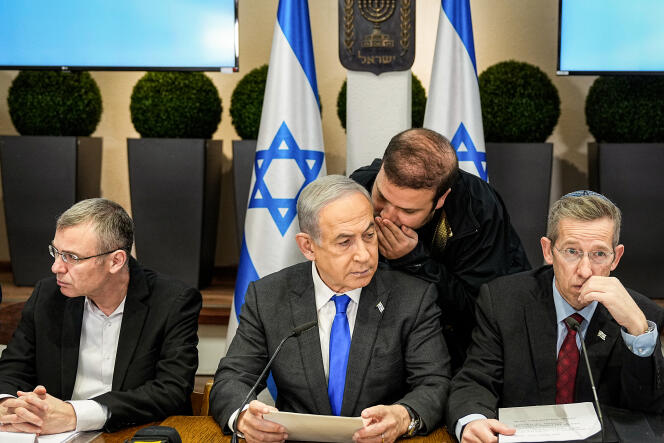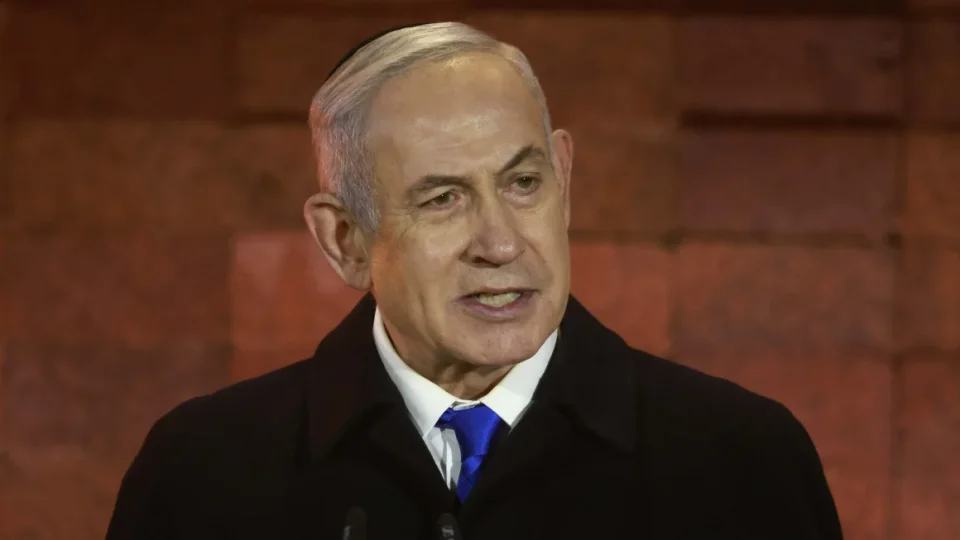FALCON POWERS – Israeli Prime Minister Benjamin Netanyahu may soon be forced to choose: Agree to a ceasefire deal with Hamas or keep his government in power.
But as he confronts that choice, Netanyahu is also looking for a way to avoid it altogether.
For months, Netanyahu has gingerly balanced these competing imperatives by refusing to even contemplate a permanent ceasefire as he blamed Hamas’s “delusional demands” for the collapse of previous rounds of negotiations. But after US President Joe Biden publicly outlined Israel’s latest ceasefire proposal on Friday – one that could lead to a permanent truce and which Hamas may be prepared to accept – Netanyahu is now out of time.
“I think that Bibi is cornered now,” said Aviv Bushinsky, a former adviser to Netanyahu, using the prime minister’s nickname. Biden is “forcing Bibi to take off his mask and say: ‘OK, now is the money time. Are you in favor of a deal?’,” he said.
As Israel awaits Hamas’ response to the latest proposal, National Security Minister Itamar Ben Gvir and other far-right members of Netanyahu’s coalition are already threatening to bolt from the government and cause its collapse if the prime minister follows through.
Amid the chorus of threats from his right flank, Netanyahu is trying to reframe the latest ceasefire proposal, insisting to Ben Gvir and others that the terms of the deal are not as Biden defined them. While Biden squarely framed the proposal as a way to end the war, Netanyahu is insisting Israel will not end the war until and unless Hamas is eliminated.

Netanyahu told the Knesset’s Foreign Affairs and Security Committee on Monday that “the claim that we agreed to a ceasefire without our conditions being met is not true.”
He appeared to be referring to the permanent ceasefire outlined in the second phase of the proposal, the conditions of which Israel and Hamas would need to negotiate during the first phase – a point Netanyahu has sought to emphasize in recent days.
According to Biden, the three-phase proposal would pair a release of hostages with a “full and complete ceasefire.”
But Netanyahu’s spokesperson told journalists at a briefing Monday that Biden had presented only a “partial” outline of the deal Israel had offered Hamas.

“The war will be stopped for the purpose of returning hostages and then we will proceed with further discussions. There are other details that the US President did not present to the public,” the spokesperson added.
The spokesperson reiterated Israel’s refusal to agree to any ceasefire until all hostages had been released, until Gaza no longer posed “a threat” to Israel, and until Hamas’s “governing and military capabilities” in Gaza had been eradicated.
“The notion that Israel will agree to a permanent ceasefire before these conditions are fulfilled is a non-starter. It’s not an option,” said the spokesperson.
Netanyahu’s efforts to convince the far-right ministers in order to avoid choosing between a ceasefire deal and the survival of his government have so far fallen flat. Ben Gvir said Monday that Netanyahu’s office refused to follow through on a commitment to show him the draft proposal, leaving him convinced the prime minister has something to hide.
If Ben Gvir or Finance Minister Bezalel Smotrich don’t back off their threats to leave the government, Netanyahu will be back to the binary choice that is beginning to materialize before his eyes.
Opposition leader Yair Lapid has offered to provide a “safety net” to keep the government in power in order to achieve a ceasefire deal, but doing so would also be handing Lapid the keys to forcing early elections once the deal is implemented.
Just as it has been over the past eight months, Netanyahu’s political survival may be wrapped up in the continuation of the war and his elusive pursuit of total victory over Hamas.
Netanyahu is confronting the choice between his government’s survival and a hostage deal at a time when his political fortunes have begun to improve. For the first time this year, Netanyahu edged out his chief political rival Benny Gantz as the preferred choice for prime minister for Israelis, 36% to 30%, according to a Channel 12 survey last week.


